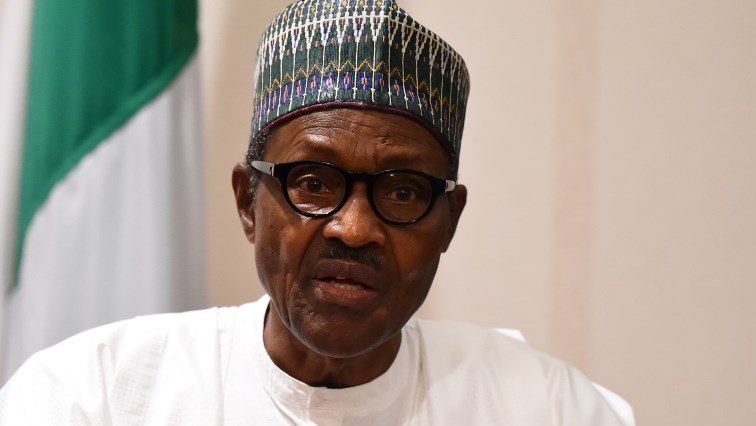2019 marked Nigeria’s 6th election in 20 years since Africa’s biggest democracy returned to civilian rule after decades of military government. Incumbent President emerged victorious and once again was bestowed with the responsibility of ensuring security and economic growth in the country but as the year runs out, critics say not much progress has been made.
Supporters of Nigeria’s ruling party the All Progressive Congress (APC) cheering their Presidential candidate, Muhammadu Buhari at a campaign rally in January 2019.
By February, elections were held and Mr Buhari returned as President for the second time. The President again promised to improve security and boost the economy.
“We intend to pursue policies that will generate massive employment for millions of our youths. We shall also continue with greater determination and focus to pursue our goals of ensuring improved security for our country and its citizens and without letting up on our fight against corruption,” says Buhari.
In March, the main opposition party, People’s Democratic Party (PDP) and its candidate Atiku Abubakar went to court to contest President Buhari’s victory. Mr Atiku said the election was a sham and the results unacceptable because it was marred with violence and malpractice.
President Buhari however maintained that it was free and fair. Analyst says although the election was largely peaceful – there were also lots of problems.
“There were still the familiar logistical challenges, violence, vote trading and poor voter turnout. Was it a failed exercise? No it wasn’t but was a significant improvement of 2015? No it wasn’t,” says Jide Ojo who is a political analyst.
In May, President Buhari once again recites the oath of office guided by the acting Chief Justice. He subsequently named June 12 as Nigeria’s new democracy day. In July, Boko Haram killed 65 people at a funeral in Borno. The incident marked a ten year campaign of terror by the insurgent group.
Despite notable military advances against Boko Haram, experts say changing tactics from physical combat may go a long way in winning the war.
“There has to be a collaboration between the government and the Muslim community, around the Sahel to roll back some of these extremist doctrines, that are usually found in the mainstream Muslim theology and until there’s a roll back what you find is that for every insurgent that is mauled down on the battle field there are tens if not hundreds of replacements, willingly,” says Majeed Dahiru who is a security analyst.
In September, the Federal Executive Council approved an increase in Value Added Tax (VAT) rate from 5% to 7.2% to increase revenue. The additional income will fund the Social Investement Programme (SIP) which is targeted at lifting 100million NIgerians out of poverty within the next ten years.
Nigeria also closed its land borders in October to stop smuggling of staple foods like rice into the country and boost local production. However, experts say the government should focus more on improving the power sector and develop infrastructure.
“Let power be stable in Nigeria, you take out of most of the unemployment, if power is stable, industry and manufacturers will be able to employ more people. You see new set of businesses, if you fix power, you can use the energy in power or outside power to fix rail systems for your big city that are now becoming insufficient,” says Paul Alaje who is an economist.
In December, the National Assembly passed the 2020 appropriation bill igniting the government’s hope of returning the budget cycle from January to December.
“Many Nigerians who voted to extend the tenure of President Buhari this year are hoping that he is able to bring about a better livelihood for the entire Nigerian people in the next few years. Expert say a good performance in the direction of the economy and security will ensure he lives up to these expectations,” says Ajeck Mangut.






